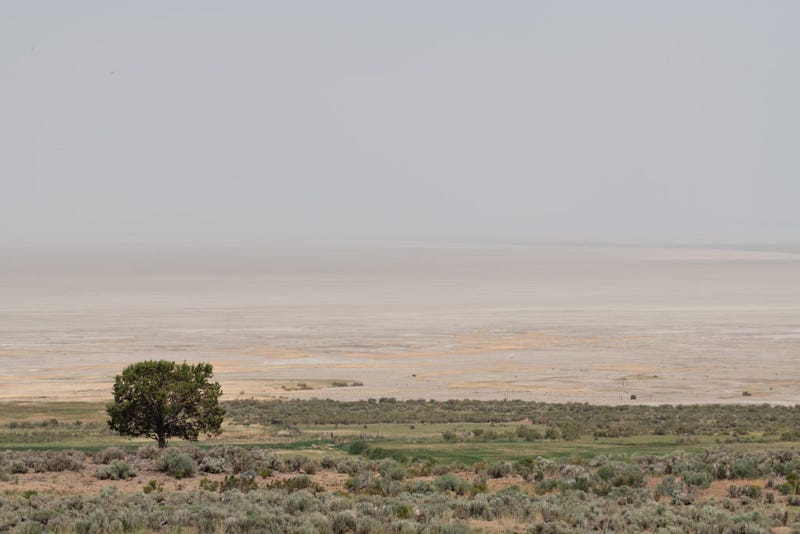
A lake in south-central Oregon considered of vital importance to the Pacific Flyway, a migratory route used by more than a billion birds each year, is in danger of running dry within a generation.
The ecosystem of Summer Lake is being threatened as an increasing amount of water from the spring-fed Ana River, which flows into the lake, is diverted to nearby farms struggling amid an ongoing drought.
"It's alarming that we have a plan in place in Oregon to basically dry up Summer Lake," environmental advocate Lisa Brown told Oregon Public Broadcasting.
"It's really a relic of an old outdated approach," Brown added. "This should be a lake that Oregon is proud to have and that we strive to sustain."
Brown said the Oregon Water Resources Department knows the aquifer that supplies the lake is being overdrawn by agricultural wells, but she claims the department is ignoring the problem.
The department's deputy director Doug Woodcock told OPB that agricultural wells in the region are lowering the water table, but he said that's "just the nature of groundwater hydrology," and insisted that farmers aren't being prioritized over wildlife. He said the agency plans to eventually track water usage in the region, but it's not clear when those efforts would begin.
"We have not been working down in that area because we have more critical areas to evaluate in the state right now," Woodcock said. "The department does have a charge to manage the area sustainably and as we can get to it, we will."
According to the U.S. Drought Monitor, Summer Lake is experiencing "exceptional drought" conditions -- the highest of the agency's five categories ranking the intensity of drought. Lake County, where Summer Lake is located, just recorded its fifth driest February in history and its second driest year to date over the past 128 years.
In March, climatologists warned that much of Oregon could expect even tougher drought conditions this summer than in the previous two years, the Associated Press reported.
"This year we're doing quite a bit worse than we were last year at this time, so one of the points is to make everyone aware that we're going into some tough times in Oregon this summer," said state climatologist Larry O'Neill.
Many of the state's reservoirs are are 10% to 30% lower than where they were at this time last year and some are at historic lows, the AP reported.
If Summer Lake were to dry up and its wetlands disappear, hundreds of animals species could be in danger. Meantime, farmers in the area are trying conserve more water and avoid a future crackdown on water rights, but they still have a profit to turn.
"If we get cut back here, it's gonna be devastating," Dan Jansen, a hay grower in Christmas Valley told OPB. "This will be a ghost town. There will be nothing but blowing sand here if we don't have the alfalfa crops."


